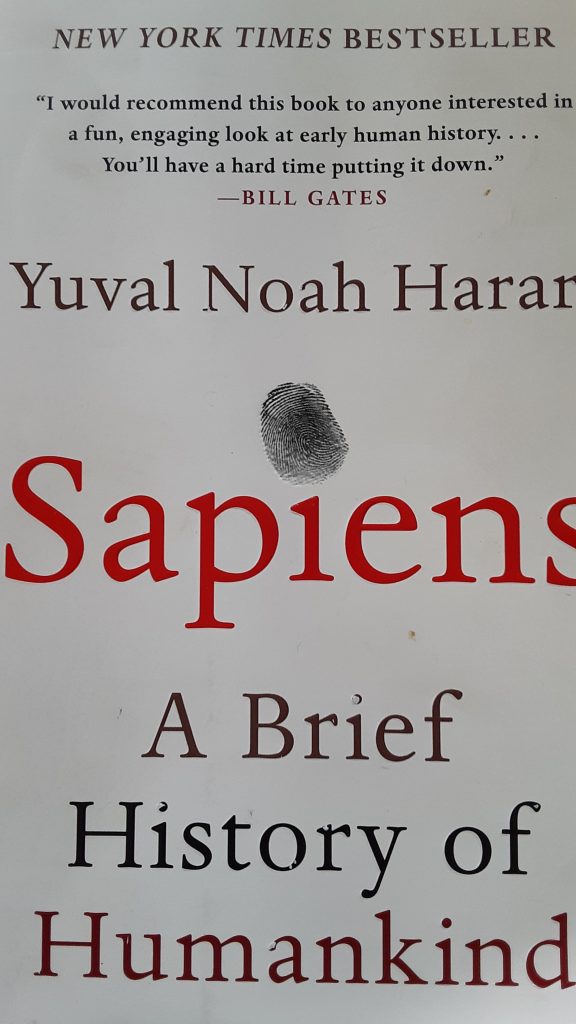By Yuval Noah Harari

Obviously I didn’t buy this for the cover unlike most of the books I buy; though you could argue it is appropriately subdued for a history book. My friend forced me to read it, by buying it for me. in the summer he had insisted that I read it. I did not take him seriously at the time as I was busy working my way through the 2001 A Space Odyssey Series, and anxious to get on to some other cheap sci-fi books I had purchased, including Stranger In A Strange Land, The Green Brain, and Pebble in the sky. I was getting hopelessly backlogged.
Then I took a trip to Utah and saw a copy in the lobby of the hotel I was staying in. I texted my friend a picture to re-affirm his suggestion that everyone was reading it. He responded by further insisting that I read it, and that this was an obvious sign that I should do so. In the airport on the way home, I passed on buying a copy because it was hard cover and $20. I haven’t bought a book for more than $10 in a long time. I’m cheap, I admit it. Frustrated, my friend bought me a copy, so I ended up paying nothing for it. Events like this make me think that I have subconsciously mastered the art of being passively manipulative.
Sapiens, A Brief History of Humankind is smart, well researched, and thoroughly readable for dummy’s like me. Harari breaks up our infinitesimally short history into several micro epochs. He tells the story of how a physically weak and unremarkable species of hominid emerges from a group of similar species to take over a planet.
Some highlights for me included, our cohabitation and interbreeding with Neanderthals, and Denisovans; The disappearance of large predators from each new land that we entered; the domestication of man by wheat, and cooperation of larger groups of humans through collective belief in myths including religion, laws, money, and rights. Harari goes on to discuss the marriage of science and imperialism, the feedback loop of capitalism, and the future of homo sapiens, including cloning, and the bio-mechanical engineering and integration of mankind into a new species not yet imagined.